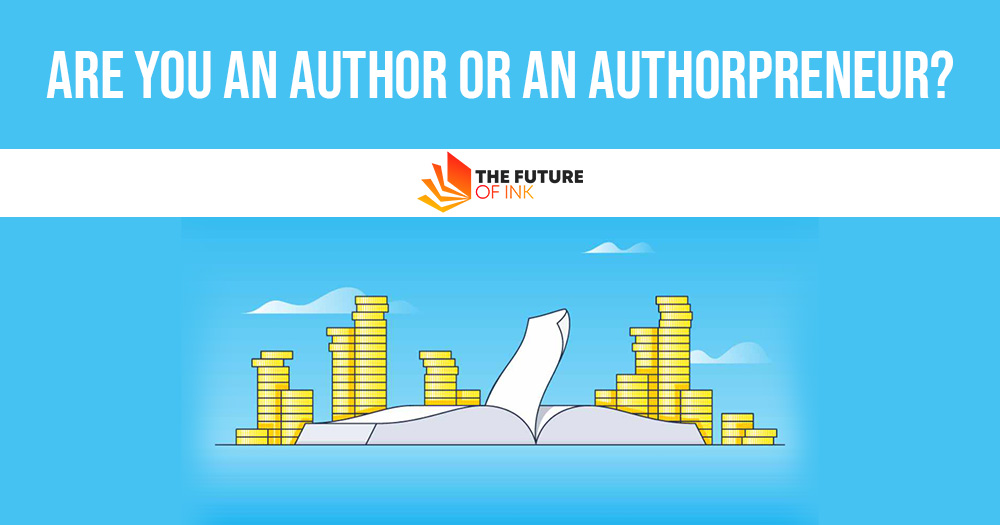Contents
Nowadays, the old definition of “author” doesn’t usually apply to first-time or relatively new authors.
New authors that say they received six- or seven-figure advances are most likely politicians seeking “legal” political donations, or they’re high profile celebrities with millions of fans.

On average, most first-time authors must think with the mindset of an authorpreneur, no matter how they get published.
An “author” used to make their living writing. They’d write all day, market minimally, has a publicist at the publishing house schedule book signings and tours, and live the writer’s dream life.
However, an “authorpreneur” thinks with the mindset of an entrepreneur who happens to have written a book.
They focus on business-building techniques more than writing, market like mad, sometimes hire their own publicity firm, and handle the nitty-gritty details of book signings and tours by themselves or by outsourcing to a professional publicity team.
Authorpreneurs pay for most if not all of their own marketing, whether they’re self- or traditionally published.
By now I know you’re thinking you want the life of an “author,” right? So would 99% of aspiring authors in the world.
The sad truth is, due to circumstances beyond your control, that authors’ life is hard to reach by any aspiring author nowadays. Almost every first-time author has to think like an authorpreneur if they want to be successful.
The good news is, if you can shift your mindset to that of an authorpreneur, you will eventually reach that dream status of “author.”
It doesn’t mean your work ends—most authors still do a bit of their own marketing—but it does make it easier having a publicist backing your marketing plan.
Also Read: Top 10 Self-Publishing Blogs: The 2012 Winners!
Learn everything you can about running a small business. Successful small businesses use marketing tactics and strategies you’ll find incredibly valuable in your own book’s marketability.
Surround yourself with successful small business owners and learn from them. Some tactics I use for both my business and book marketing that I learned from other successful business owners include:
- Having a website with an updated blog
- Offering a free giveaway tied to an email autoresponder system
- Regularly sending emails and/or an email newsletter
- Creating a Facebook page
- Starting a Facebook or LinkedIn group
- Creating video tips and uploading them to YouTube
Apply these tactics and strategies to your book’s marketing plan just as entrepreneurs use them in their businesses.
Get an accountant. Most successful business people have an accountant telling them what’s deductible, when to deduct, and keeping their tax records straight. Even if you publish traditionally, an accountant is not a step you should skip.
Interview friends who own businesses and ask who they use, what they like about their accountant, and schedule a free consultation with the accounting firm.
Be sure to do your research! Accountants handle sensitive financial information and often have direct access to your bank accounts, so you want to make sure you check references and trust who you choose.
Get promo materials. Without something to leave a potential buyer or great contact, you will have no way for them to follow up with you to buy your book. Here are some essential promo materials to have for your book:
- Business cards
- Bookmarks
- Two-sided full-color flyers
- Upcoming signing/workshop schedule
- Unique promotional items related to your book you can give as free gifts
Attend business-building workshops. Attend small business events and conferences to learn how to generate leads and sales.
There are hundreds of such conferences every year, so do an Internet search for small business conferences going on in your area. You can also join a local networking group or small business club.
One of my personal favorite conferences I think every authorpreneur should attend is NAMS (Novice to Advanced Marketing Systems workshop).
This conference offers levels of learning so newbies and seasoned entrepreneurs alike can learn marketing tactics and implement strategies.
The best part about NAMS is the camaraderie between instructors and students. Technically all instructors are students, so everyone learns together.
Look for events like this in your area where you’re comfortable learning new things, where instructors will be patient to teach you new tactics and where you’ll get support for learning how you can apply what you learn to market your book.
With every bit of training you receive, you’ll get many more ideas on how to market your books and yourself as an expert or entertainer.
Be willing to take risks. The biggest difference between an “author” and an “authorpreneur” is the authorpreneur’s ability to take risks for a potential gain.
Every risk has both a winning and losing side, and you may not always win, but you will always learn from the experience. I use the term “authorpreneur” for a reason.
“Entrepreneurs” become famous for taking risks. Some pay off big and some cause the entrepreneur to lose thousands—and sometimes millions—of dollars. However, if entrepreneurs never took risks, they’d never hit those big paydays.
If you’re not willing to take risks to learn new things and invest your own dollars to promote your book and yourself, you will never reach the level of success that you want.
Also Read: How to Conduct a LibraryThing eBook Giveaway?
In some ways, the changes in the publishing industry have made it harder for old-definition “authors” to become successful.
However, in many ways, the changes have caused authors to become more proactive, more knowledgeable, and even more excited about their own projects.
When you take a vested interest in your own success, there is no limit to what you can achieve!




